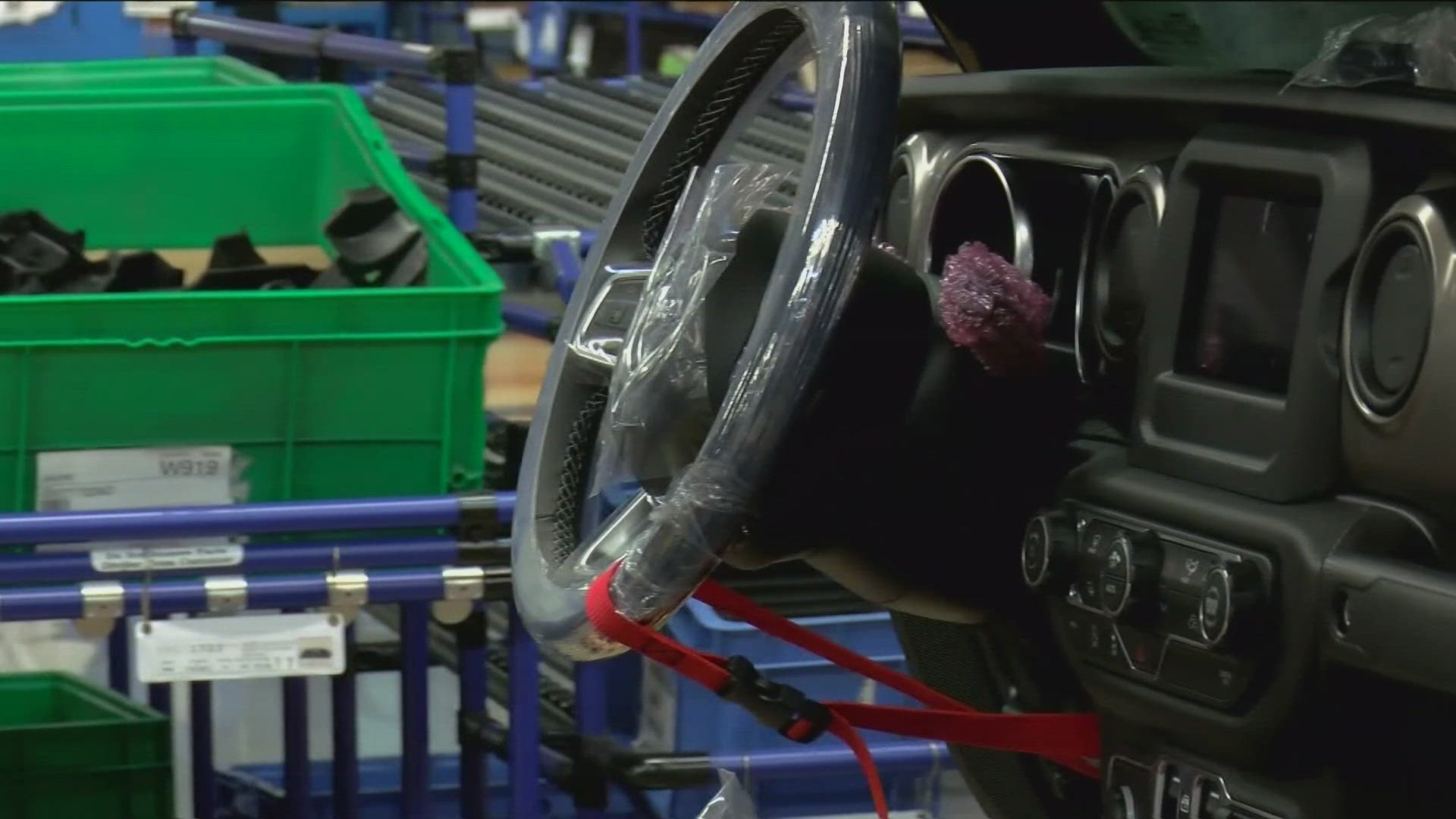TOLEDO, Ohio —
More than 1,500 local auto workers will be off the job in the new year.
Stellantis, the parent company of Jeep, recently announced plans to lay off workers at the Toledo Assembly Complex. Following that, two Stellantis suppliers, Mobis and KUKA, announced layoffs.
Arthur Wheaton, the director of Labor Studies at Cornell University, said there has been a lot of uncertainty over the economy, especially after the election.
"The hard part is the auto industry hates unpredictability," Wheaton said. "They want to be able to do five-year planning and what's going to happen, and that has been difficult to do."
Wheaton said because the auto industry is cyclical, there are always ups and downs. He said the current unpredictability around tariffs, changes in the trade agreements and the transition to electric vehicles is leaving a lot of people wondering what will happen.
"It's a question mark," Wheaton said. 'When in doubt, they cut people."
Wheaton said the impacts of the layoffs could ripple.
"For every assembly plant job, it supports ten other jobs, so it could be the making engines and transmissions," Wheaton said. "But it also hits the community."
He said these changes could impact how many people are buying groceries and other goods.
The recent cuts in northwest Ohio are connected to Stellantis, a company with a variety of brands.
"Stellantis is seeing a lot of growing pains as it's bitten off a little more than it can chew at the moment," Wheaton said. "It's got a lot of things to manage."
Wheaton said because Stellantis is not based in the United States, it does not face the same "home pressure" Ford and General Motors might have, but that does not mean other brands might not make layoffs.
"You're seeing slowdowns for the Ford Lightning, their F-150 electric pickup truck," Wheaton said. "They shut down till after Christmas now."
Where layoffs have already happened, he said it is possible jobs could come back.
"If they can boost sales up or make changes or differences or introduce a new product, they could come back," Wheaton said. "As long as the doors are open, you have some hope. Once they close the doors, then it's more difficult."
He said the auto industry will likely keep investing in electric vehicles because of the push for the technology in other parts of the world.
"I think in the short term they may build fewer, but I think they're going to continue the development and the design and working on them," Wheaton said. "Because I think most people realize eventually you're going to have to go more towards electric options, whether it's more hybrid, whether it's all-electric or hydrogen or fuel cell."
Wheaton said it is a waiting game to see what happens under President-elect Donald Trump's administration, saying tariffs could lead companies to switch the amount of specific products being made.

